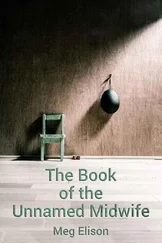His office was calm and pleasant. The early winter sun brightened the window behind him. Yet as every minute he remained in place moved effortlessly into the next, that new minute came with the increased anxiety that it might be his last. The wonderful warmth, his comfortable chair, the lovely rigor and stasis of practicing law were growing, with time, increasingly impossible to enjoy. He almost believed Naterwaul could be right, that worry alone could cause the attacks. Of course Naterwaul was also the moron who suggested that SoCal yahoo who had him reenact his birth. Those were some dim, desperate days. He’d be goddamned if he was returning to that giant foam womb and working to cry during reentry.
DeWiess, the environmental psychologist with the desert retreat, blamed urban air, cell phone radiation, and a contaminated water table, and gave him a sheet of paper with the names of everyday toxins listed front and back.
At ten he rose to walk down to Peter’s office. Standing was hard. His legs were eighty years old again. His first steps were stiff and careful, an easing back into fluid motion that stunned the cantankerous joints. He limped down the hallway.
“Knock knock,” he said at Peter’s door.
“Hey hey,” said Peter.
He entered the office and sat down. Peter was the senior associate on the R. H. Hobbs case. Tim didn’t think much of him.
“Maybe I’m in and out these next couple of days, Peter. Maybe, maybe not.”
Peter demonstrated the lack of curiosity required of associates when something personal appeared to be driving a partner’s decision. His blank expression conveyed the theater of total understanding. He didn’t even lean back in his chair. “Sure, Tim.”
“We’re under the gun, yeah. This thing is pressing down on us. But you don’t make a move without me. Understand?”
“Tim, who—”
“Not one move.”
“Who am I?”
“You call me, understand? I don’t care what it is. I’m always on my cell.”
“Of course. Of course.”
“From this point forward I’m on my cell. No Kronish. No Wodica.”
“No, no way. What for?”
“They don’t know the case. You know the case better.”
“I’ll call you, not a problem.”
“And you, I mean this with all due respect.”
“Yeah.”
“You’re just not ready yet.”
“No,” said Peter. “No. I’m happy to call you, Tim.”
Tim nodded and stood. Halfway down the hall, he heard his name being called. He looked back at Peter, who stood in the doorway, but his body kept moving forward.
“Hobbs is due in today, right?”
“Today?”
“Just wondered if you’d be here for that.”
“He’s due in today?” He was getting farther and farther down the hall.
“I thought you said he was coming in.”
“I said that?”
They had to talk louder.
“Tim?”
“You call me, Peter! Understand? You don’t make a move without me!”
He turned the corner and disappeared.
“There is no laboratory examination to confirm the presence or absence of the condition,” he was told by a doctor named Regis, “so there is no reason to believe the disease has a defined physical cause or, I suppose, even exists at all.”
Janowitz of Johns Hopkins had concluded that some compulsion was driving him to walk and suggested group therapy.
Klum dubbed it “benign idiopathic perambulation.” He’d had to look up idiopathic in the dictionary. “Adj. — of unknown causes, as a disease.” He thought the word, divorced of meaning, would have nicely suited Klum and her associates. Idiopaths . He also took exception to the word benign . Strictly medically speaking perhaps, but if his perambulation kept up, his life was ruined. How benign was that?
The internists made referrals. The specialists ordered scans. The clinics assembled teams.
He saw his first psychiatrist reluctantly, convinced as he was that his problem was not a mental one. Dr. Ruefle began their session by asking about his family history. He offered what little he had. His grandparents were dead; he knew their occupations, but nothing more. His father had died of cancer when he was a boy. On the twentieth anniversary of his death, his mother had been struck by a mirror, beneath which she had been sitting in a restaurant, when it came loose from the wall, and she died of blunt trauma to the head. Dr. Ruefle was never able to make sense of these facts or anything else. Tim lost the last of his patience with her when she suggested he see a genealogical healer, on the chance that something tragic had taken place in his past — an ancestor lost in a death march or some other forced evacuation. He had no idea what “genealogical healing” might entail and dismissed the idea as quackery.
He walked past the reception desk and through the glass doors, beyond the elevators and into the echo chamber of the emergency stairwell, where fire drills were conducted. He took the stairs with a determination he never displayed during drill time, as if now there were something to flee. He kept one hand on the railing. The orange stenciled floor numbers, the fire extinguishers. The toes of his dress shoes hit one note twelve times, reached the switchback, started the note again. He avoided the vertiginous glimpse down the rabbit hole of diminishing floors.
For some people the depressing setback was a return to the hospital, it was some migraine holocaust, lower-back blowout, inconsolable weeping, arthritic flare, new shadow on the CT scan, sudden chest pain.
Hobbs was coming in today?
Twenty floors down he encountered a black man. The man sat on the landing beside the painted piping that emerged from the wall. A thick coiled fire hose was encased in glass above him. He wore a winter coat, black but for the places where the white synthetic fiber cottoned out from tears in the shell. A collection of wrinkled shopping bags was arrayed around him. He had removed his shoes, a pair of high-tops gone brandless with grime. He was inspecting the brick-red bottoms of his feet.
“What are you doing here?”
The man looked up with a foot in hand. “Huh? Oh. Yeah, just…”
“What?”
“Looking for cans.”
Tim walked past him and continued to descend. He was forced to turn his head in order to stay in the conversation. “How’d you get past security?”
“It’s my brother,” said the man.
“What?”
“My brother.”
“Who’s your brother?” He reached the next landing and within a few stairs lost sight of the man. “You shouldn’t be here,” he cried up.
“What?”
“I said I don’t think you should be sitting in our stairwell!”
His voice echoed through the upper stairs. The man no longer responded. The clop of dress shoes filled the silence. In no time he descended past the twenties and the teens and entered the lobby.
Once he ran with the goal to exhaust himself. Maybe there was no slowing down, but he could speed up. He could move his head, his limbs — hell, he could dance so long as he kept moving forward. Like a stutterer in song. He juked and huffed around casual city walkers until he was in New Jersey and his lungs hit a wall and he stopped. But his legs, he realized at once, had every intention of continuing, and continue they would until they were through. He couldn’t believe what he had inflicted on himself, his muscles quivering with fatigue, every step like lifting out of quicksand.
He had Jane lock him inside the bedroom. The tidy circles he was forced to walk made him dizzy and half-mad.
He had Horowitz pump him full of a powerful muscle relaxant. Which worked for the time he was out. But after the medication wore off he was out walking again, this time drowsy and nauseous, his longest and most miserable walk, and he swore never to do that again.
Читать дальше












